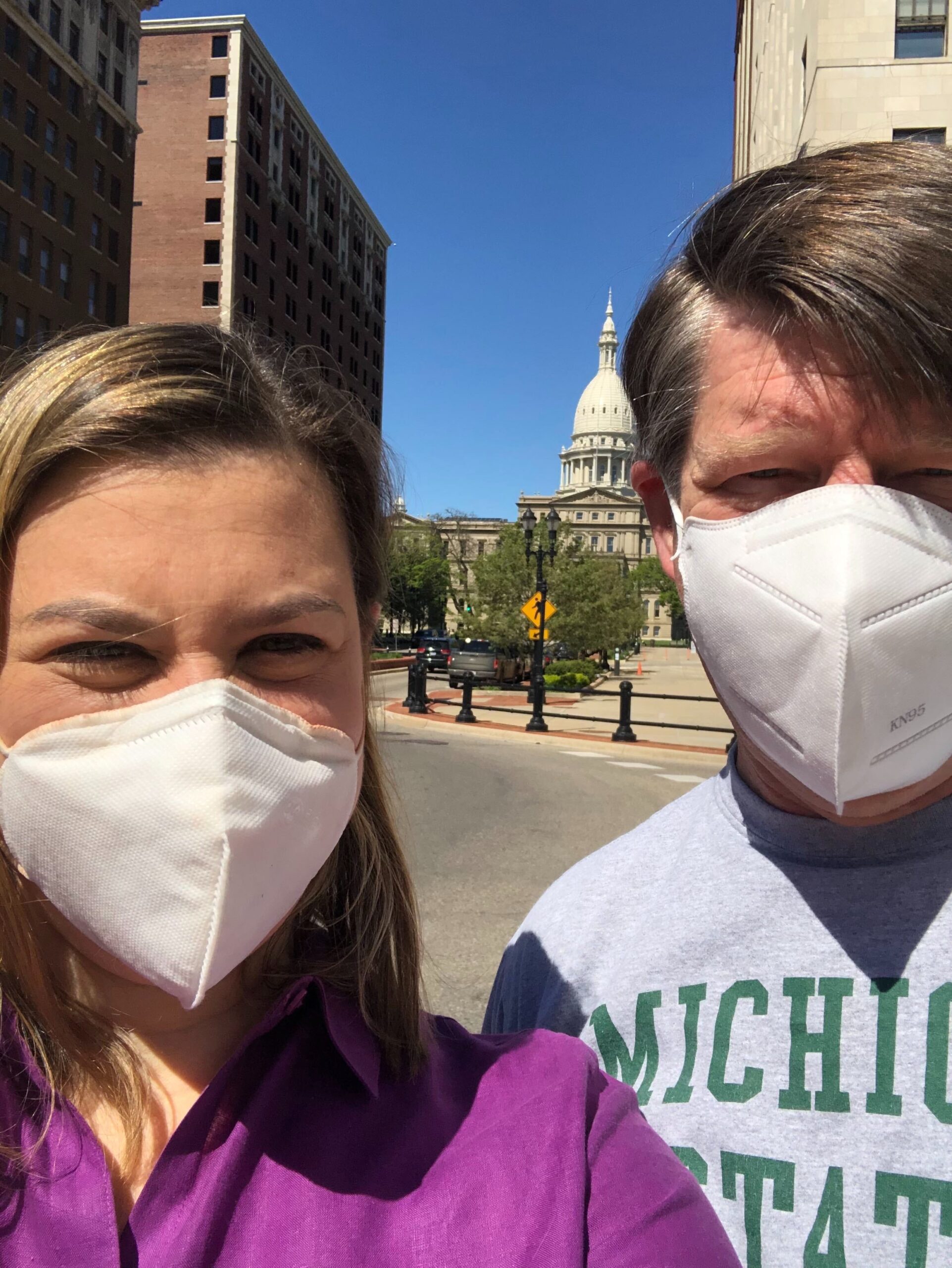
Rep. Slotkin seeks U.S. supply chain solutions before the next disaster.
A new bill, introduced by Rep. Elissa Slotkin (D-Mich.) with a strong bipartisan cohort of co-sponsors, would establish a $500 million pilot program to diversify domestic manufacturing sources of critical medical supplies.
Slotkin, like many government officials, experienced the chaotic hunt for PPE that embroiled much of America in the early months of the coronavirus pandemic, tracking leads on N95 masks through shadowy figures.
Despite the time that has passed since those early days of the pandemic in America, local governments continue to desperately hunt for supplies. All too often, their searches lead to dead-ends or highly questionable suppliers — The New York Times recently revealed that several Chinese companies are exploiting Uighur forced labor to manufacture PPE.
The situation has improved since those early days, but as outbreaks continue to rage in the U.S., there is little doubt that PPE will continue to be critical to America’s management of the COVID-19 pandemic. Yet, the Trump administration has done little to guide domestic production development to meet that need.
Thus, Slotkin hopes to anticipate America’s future need of emergency supplies by bolstering the domestic supply chain. If Slotkin’s Strengthening America’s Strategic National Stockpile Act is passed, the program to develop further U.S. manufacturing sources for emergency supplies would be funded with $500 million annually until 2023.
"Our frontline medical providers have been in combat against a deadly virus without the armor they need to protect themselves,” Slotkin said. “When Michigan and other states called on the Strategic National Stockpile for urgently needed masks, gloves and other protective gear, what we got was nowhere close to what we needed. We should never again be dependent on foreign suppliers for equipment we need to keep Americans safe in a crisis."
Significantly, not only would the Strengthening America’s Strategic National Stockpile Act ensure the availability of critical medical supplies in future crises, it would diminish our nation’s dependence on foreign countries for those supplies.
"It’s simple: this bipartisan package will ensure more critical medical supplies are made here in America,” Slotkin said. “It will reduce our dependence on foreign suppliers by boosting domestic production of critical supplies. It will improve our ability to protect our frontline workers, to respond to this and future public health crises. It will strengthen maintenance and oversight of the stockpile, and give us a comprehensive account of what states have asked for and what they received from the stockpile. And it will do so in a bipartisan fashion, because this virus doesn’t pay attention to party politics and neither should we."
Reflecting broad bipartisan agreement on the urgent need to restore the strength of America’s manufacturing base, Slotkin’s bill is co-sponsored by nine Republicans and nine Democrats.
"In a global health crisis, there is so much uncertainty, but one thing should always be certain — hospitals, medical providers, and first responders must have the PPE and other medical equipment they need to protect themselves and others,” said Rep. Fred Upton (R-Mich.), a co-sponsor of the bill. “This bipartisan initiative to strengthen the Strategic National Stockpile is common sense and would ensure that we will be able to get life-saving care into the right hands at the right time. I’m proud to be an original co-sponsor and would encourage my colleagues on both sides of the aisle to support this legislation."
The Strengthening America’s Strategic National Stockpile Act has already passed through the House Energy and Commerce Committee, and should be up for a House vote by the end of the month with consideration in the Senate alongside the next coronavirus relief package, if Slotkin achieves her desired timeline.
